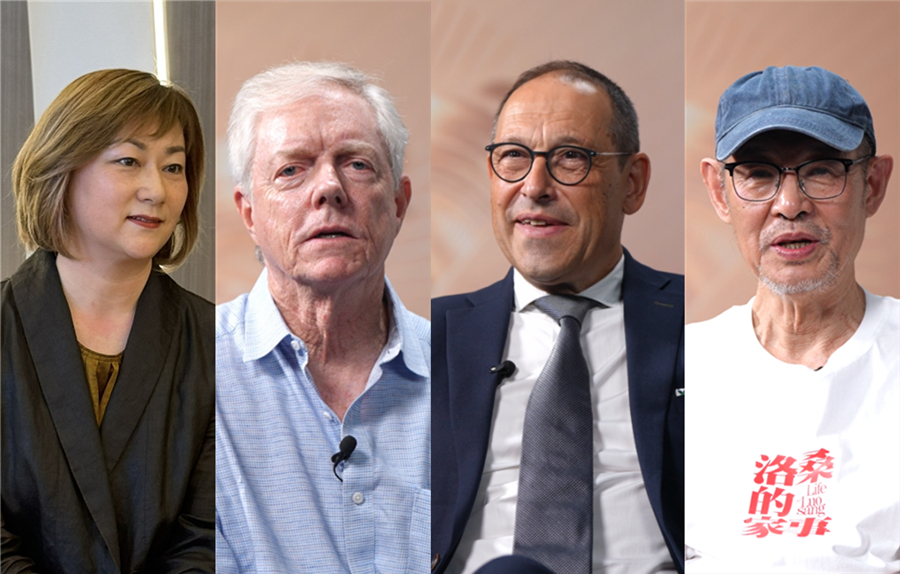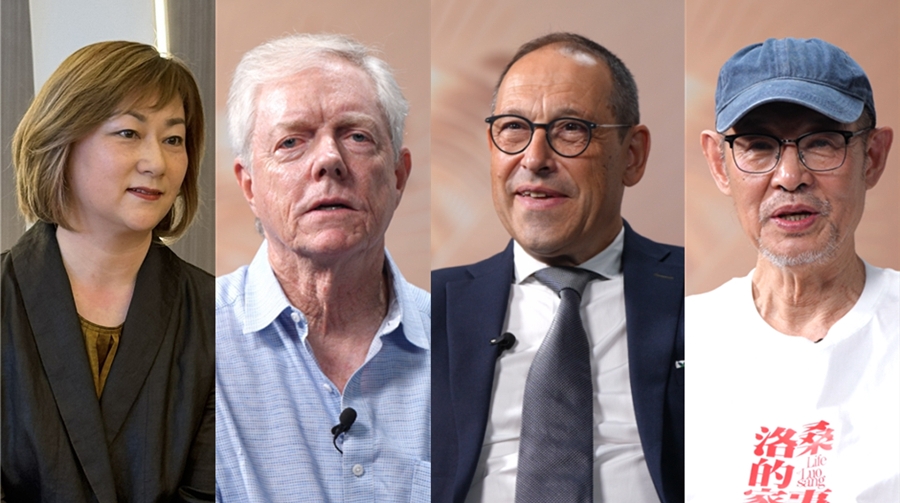Filmmakers from China and abroad gathered Saturday at the second Golden Panda Awards in Chengdu, Sichuan province, expressing high expectations for cultural exchanges and opportunities to find creative inspiration.

From left to right, Su Da, Douglas Hans Smith, Patrick H?rl and Lu Wei. [Photo courtesy of Golden Panda Awards Organizing Committee]
"Animation has a natural advantage in international communication," said Su Da, head of Shanghai Animation Film Studio and a juror for the animation category of the Golden Panda Awards. "First, it conveys humor. You can create an entire animation without a single line of dialogue. It doesn't rely on language for understanding but uses actions to express thoughts and emotions. Additionally, the portrayal of traditional Chinese artistic concepts and aesthetics holds strong appeal for international audiences."
Su said 77 animated works were shortlisted for this year's Golden Panda Awards. According to Su, the selection showcased diverse artistic styles and creative approaches, with judging that reflected individual preferences while promoting cultural exchange.
Douglas Hans Smith, a producer and visual effects artist known for his work on "Star Wars: A New Hope," "Independence Day," and the Chinese mythology epic franchise "Creation of the Gods," served as a juror for the animation category. He emphasized the Golden Panda Awards' focus on Asian roots and its growing global role, praising the event's organization for drawing international attention to Asian cinema.
"Anybody who sees a film from a different country immediately has compassion for what they see. They see the parallels in their lives with what's happening," he said.
Smith noted China's vast domestic market provides filmmakers a strong foundation for international expansion. He said Chinese filmmakers developing their craft locally can find global success because storytelling resonates universally.
"The reactions to the storytelling are similar, and they would be able to take that internationally, especially with the advent of AI and being able to potentially put it in a different language fairly quickly," Smith said.
Patrick H?rl, a German documentary filmmaker who chaired the documentary jury, highlighted changes in the genre. He noted the industry's shift from broadcast channels to digital platforms, which has introduced documentaries to younger audiences and sparked renewed interest in the form.
H?rl attended the awards to learn about Chinese productions, citing limited documentary exchange between China and Europe. Few Chinese documentaries reach Germany beyond historical co-productions, he said.
As a science documentary specialist, H?rl sees strong collaboration potential between Chinese and European filmmakers. He said science's universal nature makes discoveries beneficial to the global community regardless of origin.
"I think this week for me is a time when people from different countries meet each other, some for the first time, and this is always very helpful if you want to better understand what the differences are between cultures and that fosters understanding of each other," H?rl said.
Award-winning screenwriter and director Lu Wei, known for classics such as "Farewell My Concubine," served as a juror for the film category at the second Golden Panda Awards. Lu said good cinema requires truth, kindness and beauty, with films drawing from life while authentically reflecting regional beauty and cultural identity.
"But they share common ground. They all speak to human nature," he said. "As long as we capture the charm of our own culture and its authenticity on screen, I'm sure it can connect and communicate with audiences anywhere in the world. Many of the films that have stirred our hearts and moved us deeply were actually rooted in a specific place. It really comes down to how well a film is crafted and the strength of its artistry and ideas."


 Share:
Share: 




 京公網(wǎng)安備 11010802027341號
京公網(wǎng)安備 11010802027341號